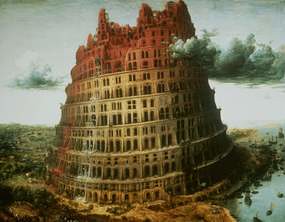Ozymandias of Egypt
 I met a traveller from an antique land
I met a traveller from an antique landWho said: Two vast and trunkless legs of stone
Stand in the desert. Near them, on the sand,
Half sunk, a shattered visage lis,whose frown,
And wrinkled lip, a sneer of cold command,
Tell that its sculptor well those passions read
Which yet survive, stamped on these lifeless things.
The hand that mocked them and the heart that fed;
And on the pedestal these words appear:
"My name is Ozymandias, king of kings:
Look on my works, ye mighty and despair!"
Nothing beside remains. Round the decay
Of that colossal wreck, boudless and bare,
The lone and level sands stretch far away.
Percy Bysshe Shelley, 1817
Ozymandias is a famous sonnet by Percy Bysshe Shelley, published in 1818. It is frequently anthologised and is probably Shelley's most famous short poem. It deals with a number of great themes, such as the arrogance and transience of power, the permanence of real art and emotional truth, and the relationship between artist and subject. It explores these themes with some striking imagery, amplified by a setting–Egypt and the Sahara desert–that was exotic for European audiences in the early 19th century. The poem's sense of distance is further enhanced by its second-hand narration; the commentator is relating to us the words of an unnamed "traveller from an antique land". Although written more than a century ago, this poem is still as fresh and enchanting today as it was then, and many of the insights even now hold true for it resonate with today's sad contemporary events…



1 Comments:
lone...sands- a lone plural; brilliant stuff
Post a Comment
<< Home